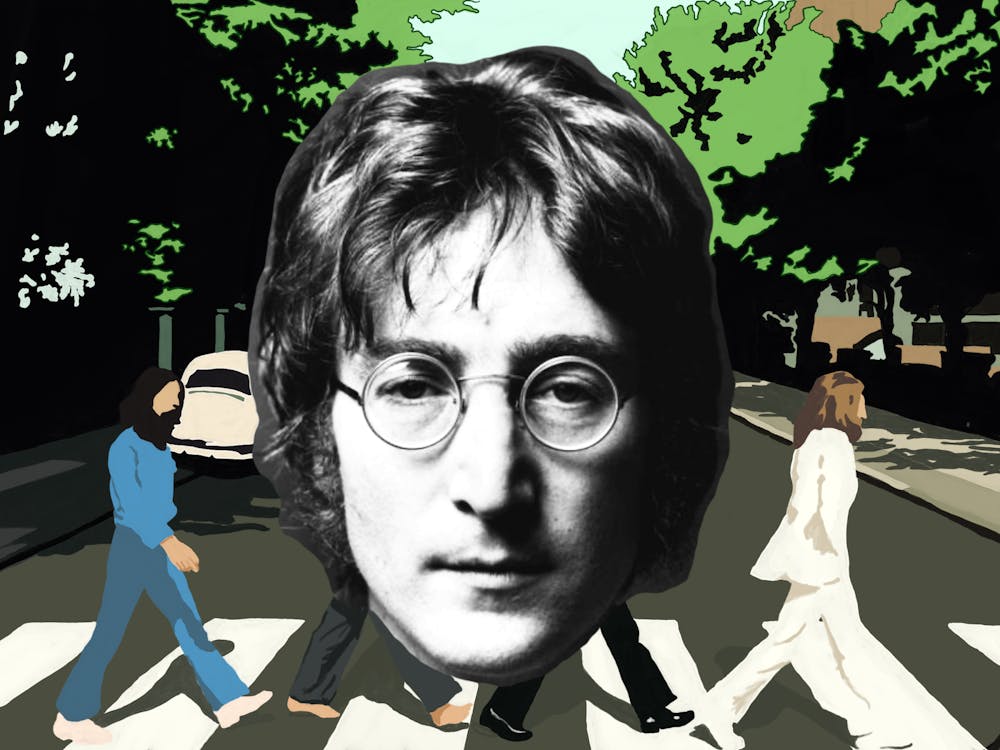On October 9, as I scrolled through social media liking post after post remembering and celebrating John Lennon, I found myself wondering how he would feel about our world today. How would he use song to guide us? What words of advice would he give? Not only was Lennon a rock 'n' roll revolutionary, but he was also an iconic figure in the world of social and political change. He left behind a tremendous legacy that lives on through his music (both as founder of The Beatles and as a successful solo artist), his activism, and his philosophy on life.
2020 is a big year for fans of John Lennon—October 9 would have been his 80th birthday, and December 8 marks 40 years since his passing. Though I was born more than two decades later, his words have and continue to inspire me and challenge the way I think. Especially with the craziness that is the world around us, there has never been a more perfect time to remember what he sang about: peace, love, and individuality.
The man who later became a symbol of peace was ironically born during a blitzkrieg attack in the midst of World War II. Lennon had a rough upbringing: his father wasn’t present, his mother couldn’t take care of him, he misbehaved in school, and his grades reflected a pure lack of interest. Young Lennon lived at his aunt and uncle’s house, but still spent a lot of time with his mother, Julia. She bought him his first guitar when he was 16 years old, and it was his love of music that grounded him and gave him a means to express himself.
Often teamed up with Paul McCartney, Lennon’s songwriting for The Beatles tended to be heavily self-reflective. Songs like “Nowhere Man,” “In My Life,” and “Help!” ventured where popular music had never gone before: Lennon explored his feelings of isolation, insecurity, and anxiety about the unknown. It’s certainly a relatable concept, and by utilizing his lyrical genius to work out his personal struggles, he demonstrated to millions of fans—including myself—that they’re not alone.
Lennon was known as the "troubled Beatle." Many people hold him to a godlike standard, but I recognize that he was a flawed individual: a real person with faults and imperfections. It was his raw introspection in his songwriting that I believe helped him to realize his mistakes and want to change. While it is vital to recognize his abusive past, it is his words and ideas, not his behaviors, that should be emulated. He famously said in a 1980 interview, in reference to his relationship with ex–wife Cynthia Lennon, "I am a violent man who has learned not to be violent and regrets his violence."
In his search for an answer to his own existential crisis, Lennon found meaning in improving humanity through messages of peace and love. In “Revolution” and “Mind Games,” Lennon expressed his disapproval of violent political protests and the Vietnam War. He believed it was in his power to spark change, and this became his mission. Together with his wife Yoko Ono, he dedicated himself to social and political movements ranging from equal rights to anti–war. His music was the podium on which he shared his pleas to “Imagine” and “Give Peace A Chance.”
Lennon's lyrics are timeless, and "Nobody Told Me" particularly stands out as a song that easily could've been written today. It has served as both a source of comfort and a good laugh for me over the last few months. There's "Always something happening / And nothing going on / Always something cooking / And nothing in the pot." News is constantly buzzing, but at the same time, my own life feels quiet and uneventful. "There's a UFO over New York / And I ain't too surprised." 2020 has been unbelievable, and the headlines just keep getting crazier. I don't think I'd be too surprised either if this is the year that aliens take over. "Nobody told me there'd be days like these / Strange days indeed." I hear these words and I feel as though John Lennon is right here with me, sitting across the table with a cup of tea in hand.
John Lennon was more of a guide than a leader. When I listen to him, he doesn't tell me what to do. He asks me to consider a different approach. He crafted his words—both in lyrics and in speech—in such a way that allows me to understand the core of his thoughts and beliefs. Lennon didn’t want blind followers; he truly wanted to convert individuals to lives of peace and love, and this is how his legacy is still carried on so strongly. He was a teacher who encouraged people to rethink what they knew, thus bringing together a nation of activists, artists, and idealists. Even decades later, I identify with this group.
The world stands in the midst of turmoil: a divisive election, a deadly virus, social injustice, and that’s only to name a few. Now, perhaps more than ever, John Lennon’s message rings true. Though I asked myself, “What might he say if he were here today?” I realize that he has already given me all I need. I don’t have to look much further than Lennon’s music or interviews. His words transcend time, and his songs can guide me today both in terms of fixing the world and growing as an individual. The spirit of John Lennon has always been present, in my ears and in my eyes.

